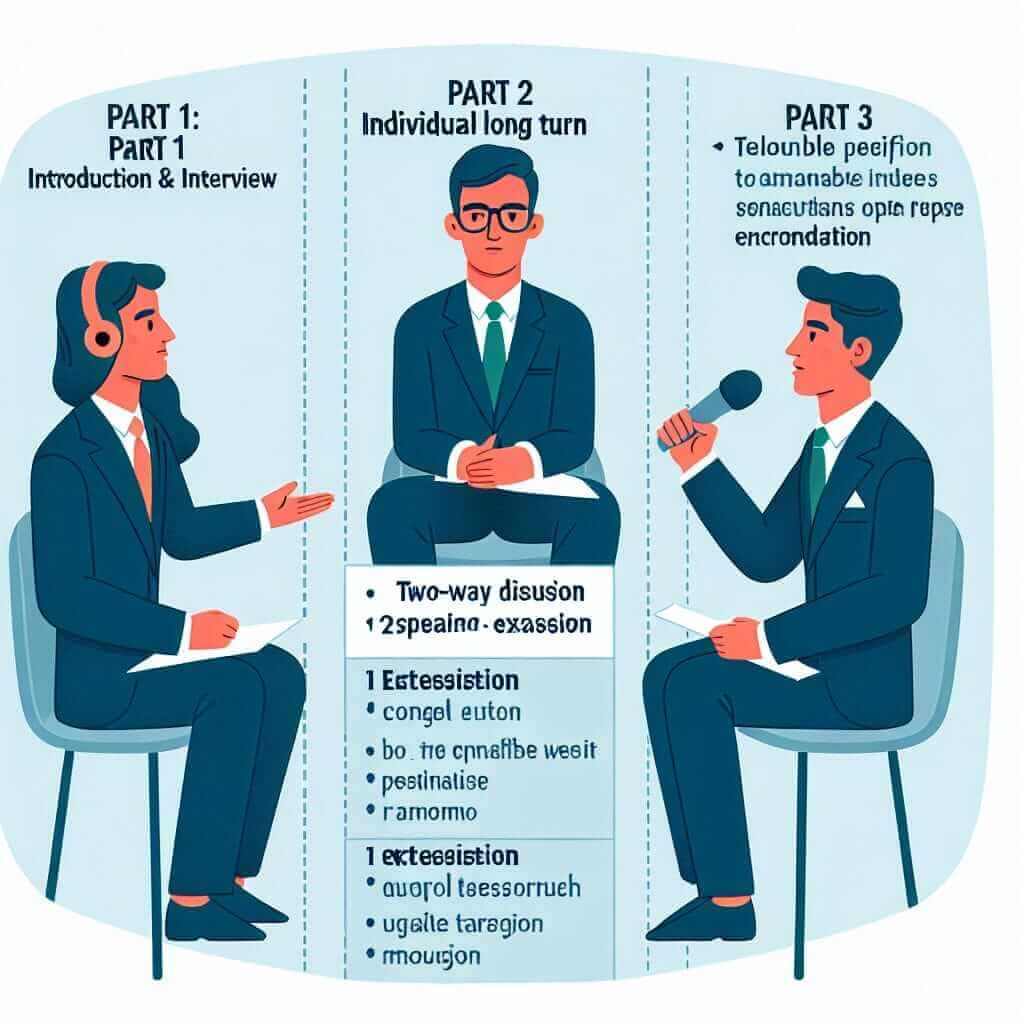The IELTS Speaking test often causes anxiety among candidates, but with the right approach and practice, you can confidently ace this section. As an IELTS instructor with over 20 years of experience, I’ve helped countless students achieve their desired speaking scores. This comprehensive guide will provide you with invaluable insights, practical tips, and effective strategies to crack the IELTS Speaking test.
Understanding the IELTS Speaking Test Format
Before delving into the tips, it’s crucial to understand the test’s structure. The IELTS Speaking test is a one-on-one interview with a certified examiner and is divided into three parts:
Part 1: Introduction and Interview (4-5 minutes)
This part assesses your ability to communicate personal information and opinions on familiar topics such as hobbies, family, and daily routines.
Part 2: Individual Long Turn (3-4 minutes)
Here, you’ll be given a cue card with a specific topic. You’ll have one minute to prepare and then speak for up to two minutes.
Part 3: Two-Way Discussion (4-5 minutes)
This final part involves a more in-depth discussion related to the topic in Part 2, testing your ability to express and justify your opinions and analyze issues.
 IELTS Speaking Test Structure
IELTS Speaking Test Structure
Effective Strategies to Crack the IELTS Speaking Test
1. Expand Your Vocabulary and Improve Fluency
- Read Widely: Engage with English texts on diverse subjects to enhance vocabulary and grammar.
- Listen Actively: Expose yourself to various English accents through podcasts, movies, and news broadcasts.
- Practice Regularly: Engage in conversations with native speakers or language partners to improve fluency and pronunciation.
2. Master the Art of Coherence and Cohesion
- Use Linking Words: Connect your ideas smoothly using cohesive devices like “furthermore,” “however,” and “in addition.”
- Structure Your Responses: Organize your thoughts logically, using clear introductions, supporting points, and conclusions.
- Maintain Eye Contact: Engage with the examiner naturally by maintaining appropriate eye contact throughout the test.
3. Understand the Assessment Criteria
Familiarize yourself with the IELTS Speaking band descriptors to understand what examiners look for:
- Fluency and Coherence: Speak smoothly, clearly, and with logical organization.
- Lexical Resource: Use a wide range of vocabulary accurately and appropriately.
- Grammatical Range and Accuracy: Demonstrate control over grammar structures.
- Pronunciation: Be easily understood, with clear pronunciation and intonation.
Example Speaking Test Questions
Part 1:
- What is your favorite time of day?
- Do you enjoy trying new foods?
- How often do you use public transportation?
Part 2:
Describe a time you had to overcome a challenge.
You should say:
- What the challenge was
- How you overcame it
- What you learned from the experience
- And explain why this experience was significant for you.
Part 3:
- What are some common challenges people face in their personal and professional lives?
- Do you think it’s important to step outside of your comfort zone?
- How can people develop their problem-solving skills?
Essential Tips to Excel in the IELTS Speaking Test
- Don’t Memorize Answers: Focus on understanding the questions and expressing your ideas naturally.
- Use a Range of Grammar Structures: Showcase your grammatical ability by using complex sentences and a variety of tenses.
- Be Confident and Positive: Maintain a positive attitude and believe in yourself.
- Practice with Mock Tests: Simulate the test environment to familiarize yourself with the format and timings.
- Seek Feedback from Experienced Tutors: Get personalized feedback to identify areas for improvement.
Conclusion
Cracking the IELTS Speaking test requires a combination of effective preparation, consistent practice, and a deep understanding of the test format and assessment criteria. By following the strategies and tips outlined in this guide, you’ll be well-equipped to achieve your desired band score and confidently communicate in English. Remember, practice makes perfect, so embrace every opportunity to practice your speaking skills.


